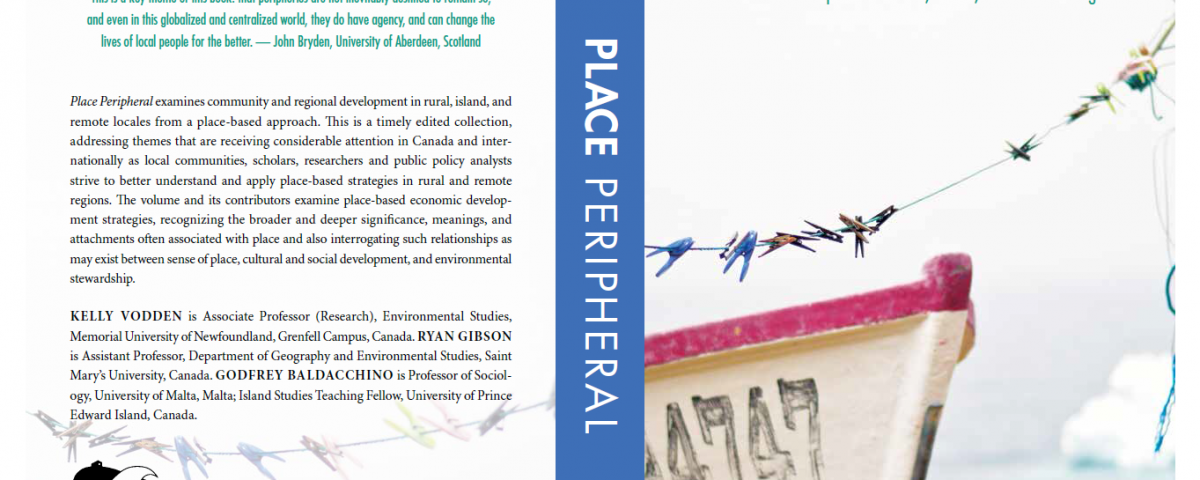Dr.Kelly Vodden Launches New Edited Volume – Place Peripheral: Place-Based Development in Rural, Island, and Remote Regions

Dr. Paul Foley joins the Environmental Studies Association of Canada’s Board of Directors
September 29, 2015
Grad Fest 2015/16
September 29, 2015Place Peripheral book Launched at International Conference
Editors Kelly Vodden (EPI Researcher and Associate Professor), Ryan Gibson and Godfrey Baldacchino together with ISER Books launched their new edited volume Place Peripheral: Place-Based Development in Rural, Island, and Remote Regions at the 10th North Atlantic Forum and 27th Canadian Rural Revitalization Foundation (CRRF) conference. The Conference, entitled Building Community Resilience: Innovation, Culture, and Governance in Place, was held in Summerside, PEI from September 16-19.
The event began with an opening session and fireside chat entitled “Globalization: Who’s winning? Who’s Losing?” followed by a book launch event. Guest speakers included Dr. Vodden and Dr. Sally Shortall, professor of Sociology at Queens University Belfast, United Kingdom.
A Little about the Book
Rural, remote, and coastal communities throughout Canada and internationally are presented with the opportunities and challenges of initiating and maintaining sustainable economic development, often in the face of declining resources and traditional economies. These communities and the regions within which they are located are hosts of social, cultural and economic transformation. In response to the dynamics outlined by forces such as post-productivism and competitiveness, the current literature increasingly advocates place-based rather than sectoral approaches to policy and planning. Challenges associated with representations of place, and multiple and changing identities are recognized as part of this process, as is the role of cultural norms and social relationships in nurturing creativity, innovation and resilience. This current literature, and the changes and challenges in rural, remote, and coastal communities that it addresses, have shaped the book’s core themes, in particular its timely focus on assets and attachments of place and their implication for community resilience and sustainability. Place Peripheral makes a timely contribution to understanding place and place-based development as researchers and government policy analysts alike strive to understand and apply place and place-based strategies in rural and remote regions. The authors in this volume shed light on how place-based strategies have been employed as well as the policies, processes and partnerships that have supported their implementation.
To purchase the volume visit: https://www.arts.mun.ca/iserbooks/publications/show_for_title?id=106




